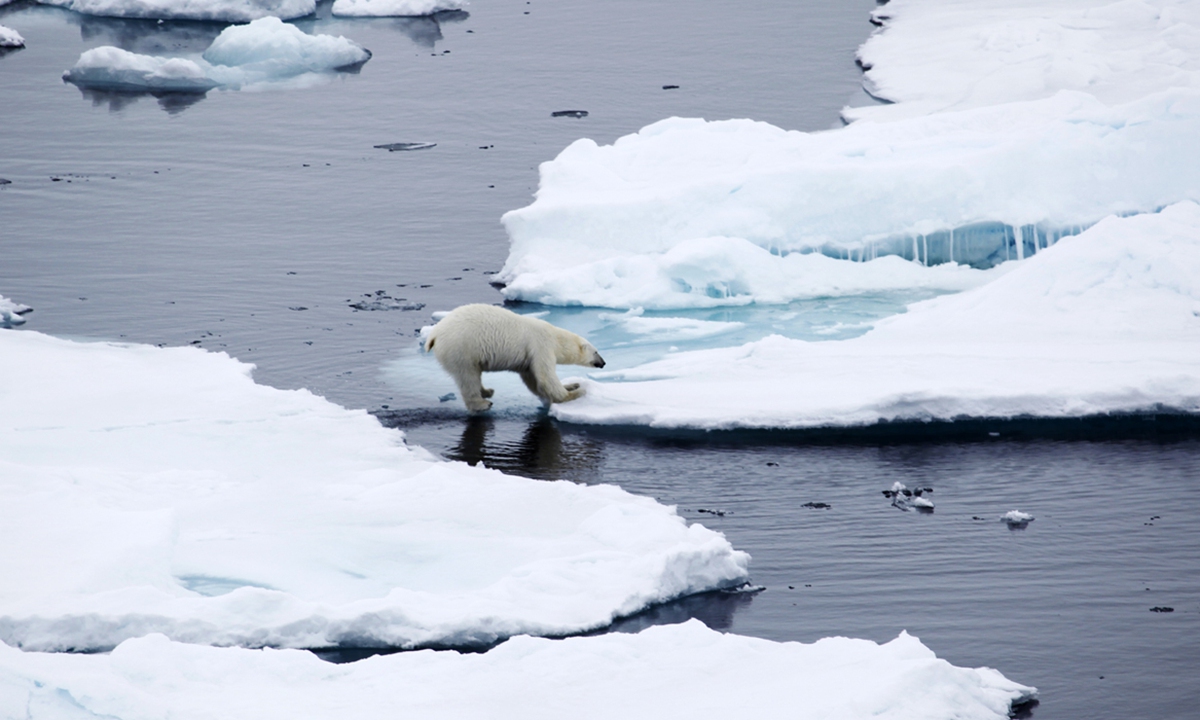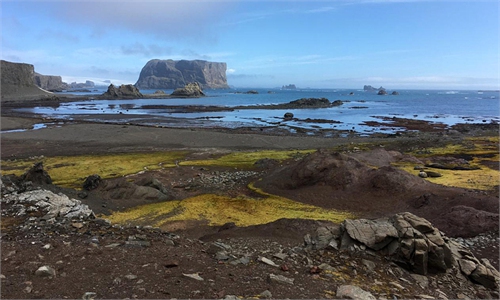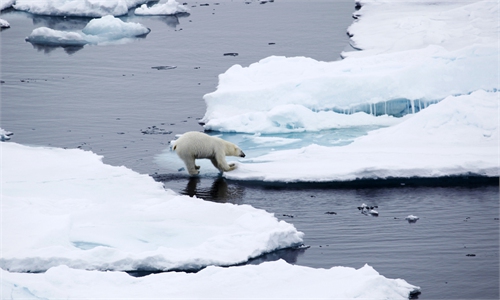US and allies in a show of strength to contain Chinese and Russian interests in Arctic

Photo: VCG
Washington and Ottawa are planning to modernize a network of defense in the Arctic, in an attempt to counter so-called growing military presence from Russia and China, the Wall Street Journal reported on Saturday.The attempt of the US and Canada to exaggerate the so-called military presence of China and Russia is aimed at curbing the development of the latter two countries in the Arctic. It's Washington's old tricks of magnifying the alleged threat. Such groundless accusation is merely an excuse for the US to increase its armed forces and budget and ramp up its military presence and activities in the region.
Although President Joe Biden has merely taken office for over one month, he has already carried out several moves in the Arctic. For example, CNN reported on February 9 that the US Air Force is deploying B-1 bombers to Norway for the first time.
So far, there is not a fundamental difference between the Biden administration and its predecessors in terms of Arctic policies. The US wants to remain the dominant military power and will spare no effort to prevent other countries from challenging its leadership. The Biden administration is expected to ramp up its attempts to maintain its position, including increasing military presence, conducting more military drills and deploying more nuclear submarines in the region.
The US has attached much importance to the North Pole as it has great strategic value. The region harbors an estimated 13 percent of global undiscovered conventional oil resources and 30 percent of the world's conventional natural gas resources, according to an assessment carried out by the US Geological Survey. The Arctic is also rich in other mineral resources.
From the perspective of commercial transportation, the Arctic sea route is the shortest and most convenient waterway connecting Europe with Asia and North America. The Arctic shipping route is even expected to become more and more vital for international trade on a global scale.
The Arctic became a region of crucial strategic military importance during the Cold War era with the shortest flight path for intercontinental ballistic missiles and strategic bombers between the two camps. At that time, the Arctic developed into an important theatre for mutual deterrence between the US and the former Soviet Union.
China has outlined its interests in the region with the China's Arctic Policy, published in 2018, where it defines itself as a "Near-Arctic State," one of the continental countries that are close to the Arctic Circle. As specified in international agreements such as the United Nations Convention on the Law of the Sea, China enjoys the freedom of scientific research, navigation, overflight, fishing, laying of submarine cables and pipelines, and resource exploration and exploitation in the high seas, and certain special areas in the Arctic Ocean. China's goals on the Arctic are to understand, protect, develop and participate in the governance of the region, safeguard the common interests of all countries and the international community in the region and promote sustainable development of the Arctic.
China also hopes to exploit the Arctic shipping route for its commercial fleets. Chinese commercial carriers can save time, money and fuel if they can transport goods through the Arctic instead than through the Malacca Strait.
But China has no military presence in the Arctic and its activities in the region will not represent a threat to any country.
It is widely known that the ecosystems in the Arctic tend to be vulnerable and the US' mounting military presence and activities will have a negative impact on the environment, including marine life in those waters.
A federal judge in California in 2013 sided with environmental groups in a lawsuit against the US government over navy training exercises employing a sonar that harmed endangered marine mammals, according to Reuters.
Against this backdrop, it can be concluded that US' massive military presence in the Arctic, especially its underwater submarine activities, will affect regional wildlife to some extent. It is the US that poses the biggest challenge to the Arctic.
The author is a senior research fellow at the PLA Naval Military Studies Research Institute. opinion@globaltimes.com.cn



